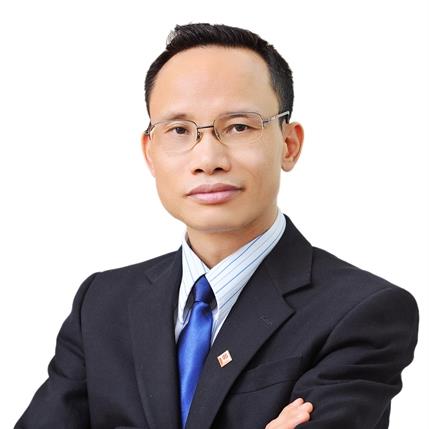Vietnamese authorities have begun a two-year trial of mobile money as they seek to promote non-cash payments and improve transaction efficiency in the economy.

Vietnamese authorities have begun a two-year trial of mobile money as they seek to promote non-cash payments and improve transaction efficiency in the economy.
With mobile money services, people can open an account on their phones and do not need bank accounts, making it especially helpful for people living in remote areas, where many do not have bank accounts.
However, they admittedly come with certain risks.
Dr. Can Van Luc, chief economist of the Bank for Investment and Development of Viet Nam, speaks to Viet Nam News about the risks and how to avert them.
What are the benefits and risks of mobile money?
Mobile money services are inevitable as they help increase access to banking and financial services for residents and businesses, especially those who do not have a bank account and in rural and remote areas.
It will contribute to promoting non-cash payments in Viet Nam where the proportion of cash payments is still relatively high compared to other countries in the neighbourhood.
It will also help reduce transaction costs across the economy.
But there are a number of risks and challenges. Firstly, if we do not manage them well, there will be a situation of the telecom network operator abusing people’s accounts.
The second risk is related to technical and information technology infrastructure. If the infrastructure is unstable, it can make mobile money users feel insecure, while technical errors can even cause loss of money.
The third is related to the trust people and consumers have in it. The biggest roadblock to cashless transactions is the long-established cash habit among Vietnamese. They don’t have much confidence in the safety and accuracy of cashless transaction. This requires us to take time to educate them on cashless transactions.
What should be done to mitigate these risks?
First of all, we need to complete the legal framework for mobile money services and have detailed instructions and regulations related to the rights and responsibilities of users and companies that provide the service as well as relationships with third parties.
When we use mobile money, we require a lot of agents, mainly retailers, and we should clarify the roles and responsibilities of the retailers.
We also need to soon complete the national database of personal identification so that we can conduct customer identity verification online instead of on paper as we do currently. This will create an eco-system linking credit institutions, mobile money service providers and third parties.
It is necessary to improve the public and businesses’ understanding of banking and financial services in general and mobile money in particular by promoting financial education. I recommend making financial education a mandatory subject for high school students from now on. Other countries provide financial education to students from an early age while in Viet Nam it is still slow.
In addition, we need to pay attention to information security and cyber-security. We have made great improvements in these, but need to continue strengthening them, especially when we expand mobile money on a national scale.
How does Viet Nam’s telecom infrastructure compare with that of other countries that have mobile money?
Viet Nam's IT and telecommunications infrastructure has developed relatively quickly. Now we start to have 5G, [and thus] a relatively good security system.
But we should remember that banking and finance is one of the six sectors with the most financial crimes. Therefore, we must be very careful, even if we have a sophisticated security system. If we are not careful, hackers can attack and create great damage to the trust consumers have in mobile money.
The internet connection is still unstable in some areas, something we need to pay close attention to, especially in remote and mountainous areas. The Ministry of Information and Communications plans to increase coverage in these areas.
Compared to countries, we are average because our internet speed, for example, currently ranks 57th in the world.
But in terms of telecommunications coverage, we are relatively good because we have around 130 million mobile subscribers with 60 per cent using smart phones. These are favourable indicators for developing mobile money. — VNS





